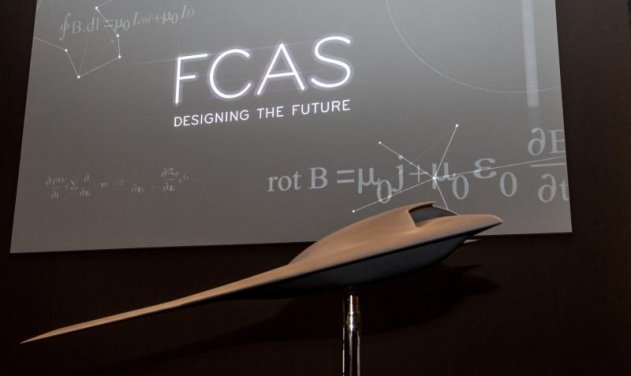By Pierre Tran
Paris – Thales will have a major role in the upcoming phase 1B in development of a technology demonstrator for the European future combat air system, including work on sensors and the combat cloud network, executive chairman Patrice Caine said March 4.
“We are one of the big partners in this initiative,” he said at a virtual press conference on the company’s 2020 financial results. “We are very much involved in at least two pillars – the sensors pillar and the pillar for the system of systems – or combat cloud.”
France has designated Thales as the “national champion” for studies on sensors and combat cloud, so much of the French spending in these two areas will flow to the electronics company, he said, declining to give any figures.
There are seven areas of work, dubbed pillars, on research and technology on the FCAS demonstrator, namely: a next-generation fighter; engine; remote carrier, or drone; command and communications network, or combat cloud; simulation; sensors; and stealth.
The Direction Générale de l’Armement signed a contract with Indra, with the Spanish company leading a three-nation consortium on the phase 1 study on sensors, Thales said in a Nov. 23 joint statement with its industrial partners.
Thales is the French partner in that consortium, along with the German FCMS group, comprising Diehl Defence, ESG, Hensoldt, and Rohde and Schwarz.
That phase 1A concept study for sensors ran for 12 months, with a possible extension of six more months, the statement said. The French procurement office signed on behalf of France, Germany and Spain.
The companies will work on the design of concepts for “a connected and distributed architecture of sensors,” including design of future sensor architectures and maturing of associated sensor technologies, the statement said.
Airbus, working out of Germany, is the lead company on study of the combat cloud, with Thales and Indra as partner companies.
The partner nations and companies are due to move on to phase 1B of the R&T work, perceived to be vital to building a demonstrator to fly in 2025/26.
France and Germany are each expected to pledge respectively some €1 billion ($1.2 billion) for phase 1B, with Spain due to commit a similar amount, a defense analyst said. Such a commitment has raised doubt on whether Madrid would be able to find funds to join a project for a European unmanned aerial vehicle.
There has been much public debate on contracts for work in phase 1B, with Dassault Aviation reported to be seeking to protect intellectual property rights on work on the next-generation fighter, while Airbus seeks full access to sensitive information.
A Jan. 2 research note from the SWP German Institute for International and Security Affairs pointed up the need to resolve the issue of IPR.
“A crucial question that arises at this point concerns the protection of emerging or existing intellectual property: to what extent should companies disclose their processes and know-how, to what extent will technical specifications be made available to the other partners later?
Resolving dispute over IPR is seen as vital for progress on the FCAS project and has an impact on other issues, said the note, titled Future Combat Air System: Too Big to Fail.
A related issue was whether maintenance and repairs would be reserved to the lead manufacturer, or would there be access to documents which allowed the armed forces to service the kit, backed up by industrial partners?
“If only the manufacturer can and is permitted to carry out certain parts of the maintenance, this might also affect operational readiness,” the note said.
A Feb. 16 research note from the Institut des Relations Internationales et Stratégique, a think tank, said a compromise was needed to allow a signing of the phase 1B agreement, as not a single European nation could afford such a complex program on its own.
“A destructive competition between our companies would lead to the loss of our industrial capability in military aeronautics,” the note said, adding that the stakes at risk on FCAS were not just European but of worldwide importance.


